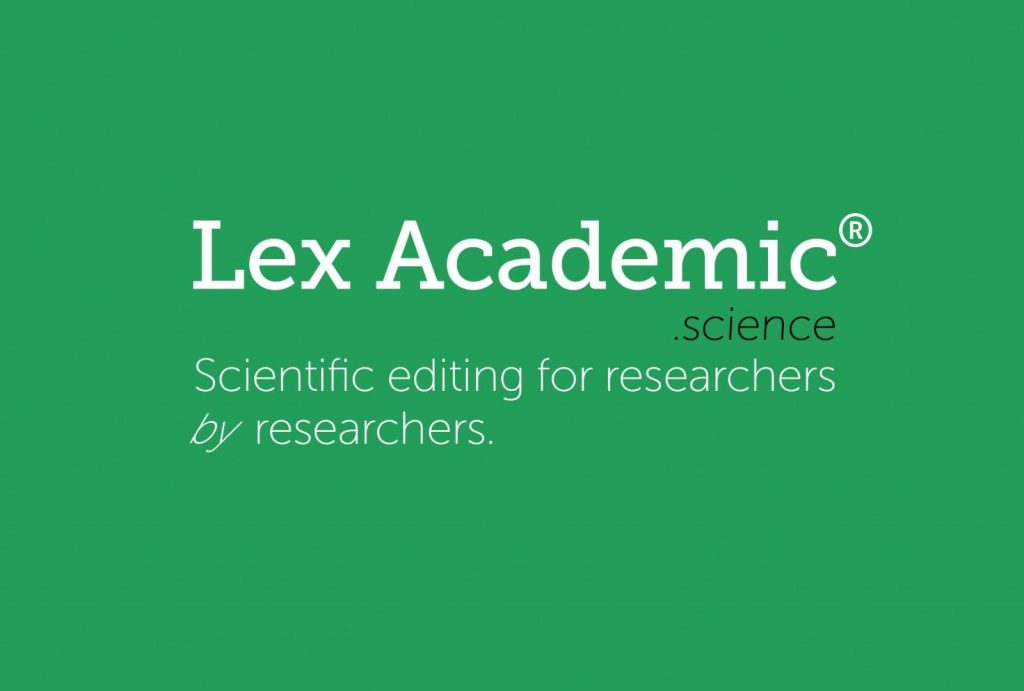The London Business News Magazine had the wonderful opportunity to speak with Louise Chapman, Founder and CEO of the successful London-based author services company, Lex Academic, on the launch of their new brand lexacademic.science, catering specifically to researchers in STEM subjects in need of expert editing, indexing, and translation services.
We asked Louise ten questions, in response to which she spoke to us candidly about the origins of Lex, the new brand, and her vision for providing all academics worldwide with a range of first-class editorial services that are tailored to their specific needs.
1. What was the trigger moment in which Lex Academic was born?
I had been proofreading as a sole trader on and off for over a decade before founding Lex Academic. While I enjoyed the work and my clients were always extremely complimentary, I’d always planned to be an academic. The decision to start an editing company and scale up actually grew out of a very painful period following my husband’s diagnosis of advanced melanoma skin cancer. I’ve spoken about this before at length elsewhere, so don’t wish to dwell on it here, but that was a very definite triggering cause.
2. And what about your new venture, lexacademic.science ?
This was a more gradual process. Lex originally began as a platform for researchers in the humanities and social sciences. My co-founder, Constantine Sandis, and I both have a background in philosophy, which remains a key strength alongside anthropology, film studies, psychology, and cultural studies.
But our reputation grew extremely fast over the past couple of years and Lex Academic kept receiving more and more requests from the sciences. For this reason, we have been able to launch lexacademic.science with testimonials from STEM researchers with whom we’ve been working for some time.
3. Did anything motivate you beyond the existence of a ready client base?
Lex is first and foremost motivated by a mission to provide a white-glove service that goes well beyond the provision offered by more generic proofreading companies. Our motto is scientific editing for researchers, by researchers. It is vitally important to us that the editor assigned to any given text bonds with that manuscript at a deep level. That is the only way you can ensure an engaged editor who can make meaningful, intelligent interventions in an academic text.
Moreover, we passionately believe that good research should not be prevented from seeing the light of day owing to linguistic bias or the author’s being dyslexic. I’m delighted that we are now in a position to offer the Lex Academic STEM Scholarship for dyslexic graduate students in the sciences, in addition to our existing awards for the humanities.
4. What would you say is the main difference between editing in the humanities and editing in STEM?
There isn’t any single difference because we are, in fact, dealing with dozens and dozens of distinct subjects. This is why all of our editors have suitable expertise in not just the field of any manuscript they are assigned but also the subfield. That said, many authors writing within the humanities, and especially a subject like philosophy, are engaged in arguments that are not easily separable from the language used to convey them.
This is not as obviously true for many of the sciences, though philosophers have been keen to point out the perils of miscommunicating the results of scientific experiments. While many of our authors in the humanities and social sciences have English as a second language and thereby greatly benefit from our academic substantive editing service, the chasm between research quality and language proficiency is even wider in the case of many STEM subjects, such as those involving lab work, where language sometimes only enters the scene in a serious capacity at the point of writing up the experiments. For this reason, I believe that scientific research arguably has, even more, to gain from polished prose.
5. What business challenges have you faced with lexacademic.science?
I’m a perfectionist, so I wanted to ensure that we would provide STEM researchers with editorial services to the same exacting standard that our clients in the humanities and social sciences receive. We, therefore, had to grow a parallel team of experts across science, technology, engineering, and mathematics. This involved developing a rigorous method of examining and selecting editors with appropriate skills and expertise.
The Lex exam is notoriously difficult and our acceptance rate for STEM editors is 5%. We had already built a team that had proofread, copy-edited, translated, and indexed hundreds of texts in science, technology, engineering, and mathematics before creating a platform that was specifically tailored to the sciences. We are now growing the team even further and are consequently in a position to offer new career opportunities.
6. Who would benefit from working with lexacademic.science and why?
While our core clientele is highly ambitious early career researchers who have English as a second language, we assist with the publication and career ambitions of researchers at every stage of their career in all major scientific disciplines, as well as interdisciplinary scholars.
Our clients to date have included those working within AI, biology, chemistry, climate studies, dentistry, engineering, geology, life sciences, machine learning, mathematics, medicine, neuroscience, physics, physiology, psychiatry, and veterinary medicine.
7. How do you make sure that the right people benefit from the right services?
In terms of reaching out to the right people, we don’t do much by way of generic adverts in magazines and so on. Rather, we focus on the subject and geography. As for the right service, while we typically offer three tiers of editing, our offering is always bespoke.
We never suggest a service, let alone offer a quote, without first reading a sample of the text in question. It’s very important for us to get a feel for both the writer’s style and their precise needs. Everything begins with a conversation about these two intertwined questions.
8. Would you have ever turned to a company like Lex for its services while you were pursuing academia?
It’s true that many founders create a product or service that they themselves sorely need but cannot find. As I mentioned earlier, I have a background in proofreading so in that sense you might think that I wouldn’t have needed the services of an editing company. But even the best proofreaders and editors need to have their own work checked. This is why all of the work of our own specialist editors is then finished by our professional Quality Controller from the Chartered Institute of Editing and Proofreading, who provides the seal of approval to all work.
Moreover, it’s always much harder to proofread or edit your own work. Indeed, my own thesis for the University of Cambridge went through Lex’s own rigorous PhD proofreading process. This was partly because I did not have the time to format everything while running the company. Doing so moreover enabled me to adopt the client’s perspective, providing invaluable insight. Constantine uses Lex for all of his books and articles now too.
9. So would you say that using editorial services is becoming the norm in academic circles?
Now that academics are coming to terms with the existence of linguistic discrimination and the injustices it perpetrates, they can more clearly see the important role that services as ours play in leveling the scientific playing field. This is, of course, compatible with some clients preferring to use us as a secret weapon.
At the same time, we have found that we have an exponentially growing tribe of authors who are proud to use our services and who happily recommend us to others. Many of them tell us that they can no longer imagine how they ever managed before they started using Lex.
10. What is the most satisfying part of your job?
There are so many rewarding aspects but I would say that the best, by far, is hearing back from clients who have passed their PhD examination or secured a journal publication or book contract they were seeking.
We thank Louise for her time and insightful answers.
Find more information here:
 Website: www.lexacademic.science
Website: www.lexacademic.science
Email: science@lexacademic.com
LinkedIn: louise-r-chapman/ Lex Academic.science
Facebook: Lexacademic.science
Twitter: LouiseRChapman/LexAcadScience
Instagram: lexacademic.science
Author Profile

- Online Media & PR Strategist
- As the Chief of Marketing at the digital marketing agency ClickDo Ltd I blog regularly about technology, education, lifestyle, business and many more topics.
Latest entries
 Business AdviceMarch 27, 20259 Ways Technology Helps Businesses Offer Better Promotions
Business AdviceMarch 27, 20259 Ways Technology Helps Businesses Offer Better Promotions Health & BeautyMarch 16, 2025Top 15 Dentists in London – Private Emergency Dentist
Health & BeautyMarch 16, 2025Top 15 Dentists in London – Private Emergency Dentist Health & BeautyMarch 15, 2025Best 14 Orthodontist & Cosmetic Treatment Clinics in London
Health & BeautyMarch 15, 2025Best 14 Orthodontist & Cosmetic Treatment Clinics in London Business AdviceMarch 10, 2025How Automation is Transforming Team Workflows
Business AdviceMarch 10, 2025How Automation is Transforming Team Workflows




